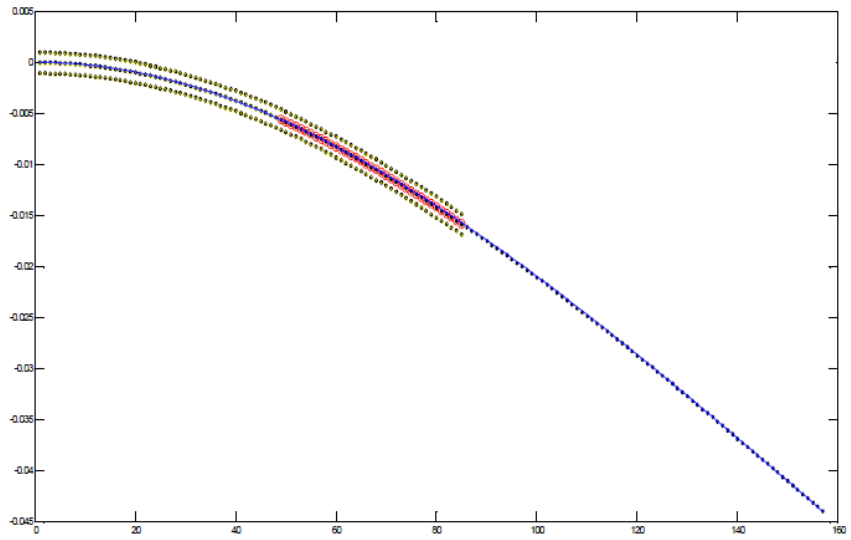3. Modeling A#
3.1. Characteristics of modeling#
The cantilever beam is 0.35 m long and extends between X = 0.15 m and X = 0.5 m. It is modelled in 3D close to the embedment (between 0 and 0.22 m) and continues with a beam modeling. The 1D-3D connection is made in volume by the 3D_ POU_ARLEQUIN option of the LIAISON_ELEM keyword of AFFE_CHAR_MECA. The overlap zone extends between the 0.2 and 0.22 m positions.
The structure is modelled by Timoshenko beam elements (POU_D_T) and linear hexahedral elements (HEXA8).

Image 3.1-1 : 1D-3D mixed model mesh
DYNA_VIBRA (transient calculation on a physical basis) calculates the dynamic response of the structure, due to a nodal force of 500 N applied at the end node of the 1D mesh (located at X = 0.5 m).
3.2. Characteristics of the mesh#
Number of stitches HEXA20 |
224 |
Number of stitches POU_D_T |
7 |
Table 3.2-1
3.3. Tested sizes and results#
The tables below give the numerical values tested in this test case. These are the minimum and maximum movements in Z of a 3D mesh node located at X = 0.5 m.
Identification |
Maximum instants |
Reference type |
Reference value |
Tolerance |
Minimal Z displacement |
20 s |
“AUTRE_ASTER” |
-0.00268654 |
|
Maximum Z displacement |
60 s |
“AUTRE_ASTER” |
+0.00268644 |
|
Table 3.3-1 : Summary of tested results
The responses of the 1D and mixed 1D-3D models of the structure are represented on the graph below.

Figure 3.3-2: Responses of 1D and mixed 1D-3D models